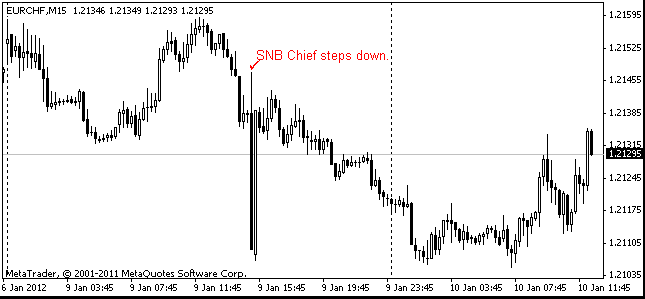EUR/usd
Merkel-Sarkozy meeting turned out not so frustrating as feared by many. However, it is early to talk about success yet. After two-hour talks the leaders of the two largest European economies noted a “rapid progress” in negotiating the extent of fiscal compact. Moreover, as Merkel put it there are chances to come to a certain agreement already by the end of January. Sarkozy,however, was more reserved in his comments, pointing that the agreement, which will have the constitutional power for fiscal discipline, has to be issued by March. Any certainty is positive for the euro. However, as before the main problem is to reach that agreement and implement the agreed measures in the entire Euro zone. Some countries may feel resistant to such control from the outside. And other states, which may actually be deprived of choice, will be simply unable to meet the imposed obligations. As you know, Greece asked for extra help and debt restructuring not out of laziness, but because of its weak economy, further hampered by tough restrictions, high taxes and the lack of private market borrowing. The situation across the Atlantic is a bit more optimistic. Improving sentiments about the U.S. economy still cautiously support the demand for risky assets, strengthening the carry trade. All that again brought S&P 500 in the area of local maximums after trading on Monday and slightly lowered the dollar rate against the majority of currencies. Locally on Monday there was some correction on the euro/dollar. It may continue today since technically the pair is heavily oversold. Yesterday we mentioned that the lower boundary of the euro/dollar corridor goes through 1.25. But it is worth specifying that in case of correction the pair may first go to the upper boundary, which at the end of the week will be passing through 1.29.

GBP/USD
On Monday the restored demand for risky assets helped the British currency to become stronger against the dollar, but at the same time pushed the euro/pound away from its 16-month low. Indeed the crisis has turned some correlations upside down. Now the pound is safer than the euro, even though it has a higher inflation and a more depressing situation with the economic recovery. However, the British 10yr gilts are now at their historic minimums – near 2.0% – which is caused by the capital flight to neighbouring currencies. In the larger scheme of things the pound has fallen against many other currencies. There is an interesting situation with the opposition of Prime Minister Cameron against allocating funds to the IMF for rescuing the Euro Zone. It seems that his position is not so firm any longer, which may adversely affect the value of the pound. Britain also holds a controversial position in relation to the financial sector. On the one hand, the authorities are trying to put pressure on banks regarding salaries and bonuses, and formally make a bid on the real economy. But on the other hand, they are strongly opposing the implementation of the single EU-wide tax on financial transactions. In other words they are indirectly trying to preserve a privileged position of Britain as a financial hub.

USD/JPY
Following U.S. equities Japanese markets are on the rise today. The leaders of such growth are exporters to North America. The dollar/yen generally keeps its positions after a slight decline a day back. Markets are receiving rather contradictory news from Japanese companies which does not allow investors to make a strong bid. The positive news is that the USA is demonstrating a favourable economic performance and that Tepco will be backed up to restore its finances distorted in the energy crisis after Fukushima. But at all that shipping companies are suffering. This is a bad sign. The pair is now trading near 76.80. The rise is observed on other yen crosses. The euro/yen is moving away from multi-year lows. The pound is winning back its positions against the yen. A 1% increase has been also observed in the AUD/JPY since Tuesday.

USD/CHF
Today we've decided to break with precedent and write about Franc. The chairman of the Swiss National Bank (SNB), Philipp Hildebrand, has unexpectedly resigned yesterday. He has held his post for only about two years. The reason of resignation was the scandal over his wife's currency transactions. She sold dollars and bought francs three weeks before her husband announced the lower boundary for the EUR/CHF. Over a few weeks in active position she earned 16% or 75 thousand francs. Hildebrand explained his decision by the fact that he couldn't provide any sound evidence that his wife had initiated the transaction without his knowledge. The euro/franc is going down on this news as traders realize that Hildebrand's successor may not be so active against the currency appreciation. This morning the euro/franc fell to its lowest level since Sept. 20. It seems that traders have decided to test the Bank's determination “to buy the currency in unlimited amounts” in order to protect the pair from falling below 1.20.
